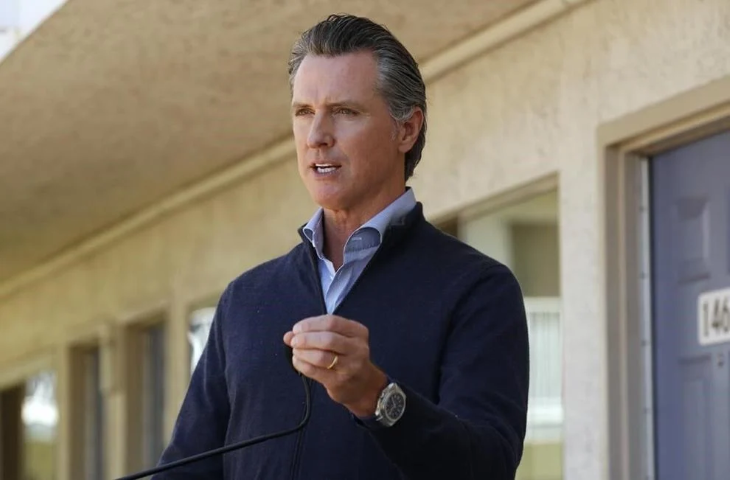
File - California Gov. Gavin Newsom provides a status update on the state's effort to offer housing for homeless individuals amidst the coronavirus crisis, during a visit to a participating Motel 6 in Pittsburg, Calif., on June 30, 2020. As of October 2023, cities and counties in California remain uncertain about the financial obligations tied to Newsom's pandemic initiative to accommodate homeless individuals in hotel rooms following FEMA's announcement restricting eligible reimbursement days. (The Canadian Press/AP Photo/Rich Pedroncelli, Pool)
Cities and counties in California are facing uncertainty over the costs associated with Governor Gavin Newsom's pandemic initiative to house homeless individuals in hotel rooms. The Federal Emergency Management Agency (FEMA) disclosed in October that it would limit the reimbursement period for eligible expenses, leaving state and local officials surprised.
According to an October letter from FEMA, the reimbursement for housing homeless individuals at risk of COVID-19 would be capped at 20 days, starting from June 11, 2021, when Governor Newsom lifted the extensive stay-at-home order issued in March 2020. State and local authorities expressed shock at this change, as they had operated under the understanding that FEMA would cover the costs without such limitations.
Responding to this development, the Governor’s Office of Emergency Services urged FEMA to reconsider, emphasizing the financial burden on cities and counties, estimated at a minimum of $300 million. This comes at a challenging time when local budgets are already strained.
In a statement released late Tuesday, FEMA stated that it would review California's letter dated January 31. However, it asserted that all states had received the same guidance and policy updates throughout the pandemic.
Governor Newsom initiated the hotel housing program, known as Project Roomkey, in March 2020 as part of the state's pandemic response. Initially lauded by homeless advocates as an innovative measure to protect vulnerable individuals from COVID-19, FEMA had agreed to cover 75% of the program's cost, later committing to full reimbursement.
California officials argued that they were not provided prior notice of the policy change. Robert J. Fenton, the regional administrator for California, clarified that the policy was a clarification of the original guidance rather than a new directive, according to CalMatters, which first reported the discrepancy.
Brian Ferguson, a spokesperson for the California Office of Emergency Services (Cal OES), warned earlier on Tuesday that FEMA's inaction could erode trust between local governments and the federal government during times of crisis.















